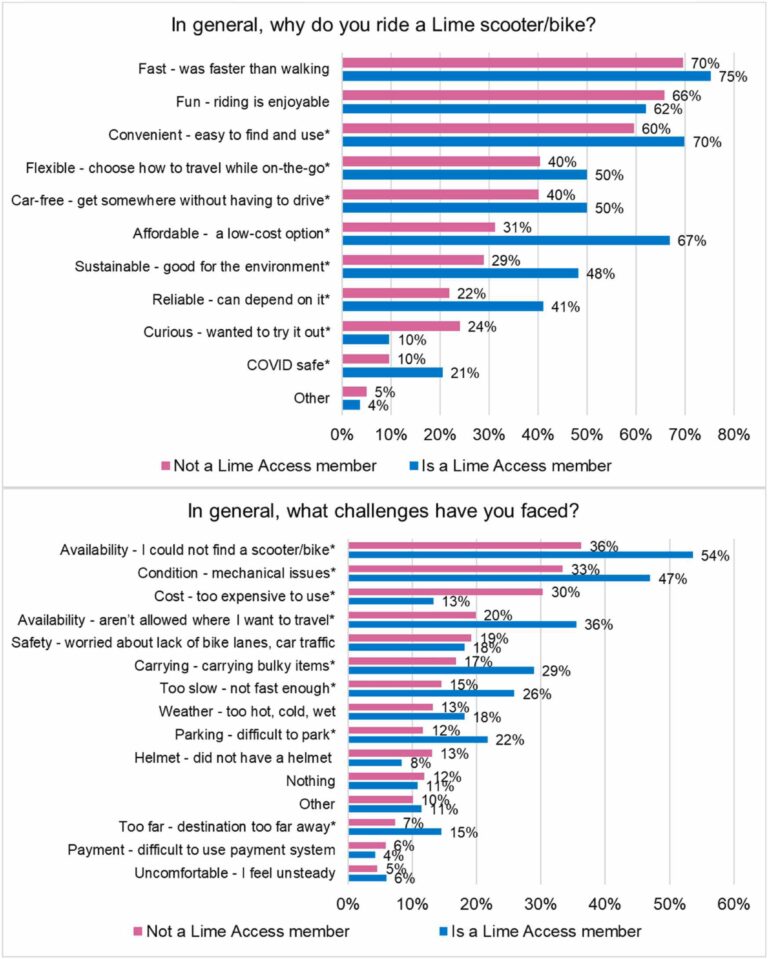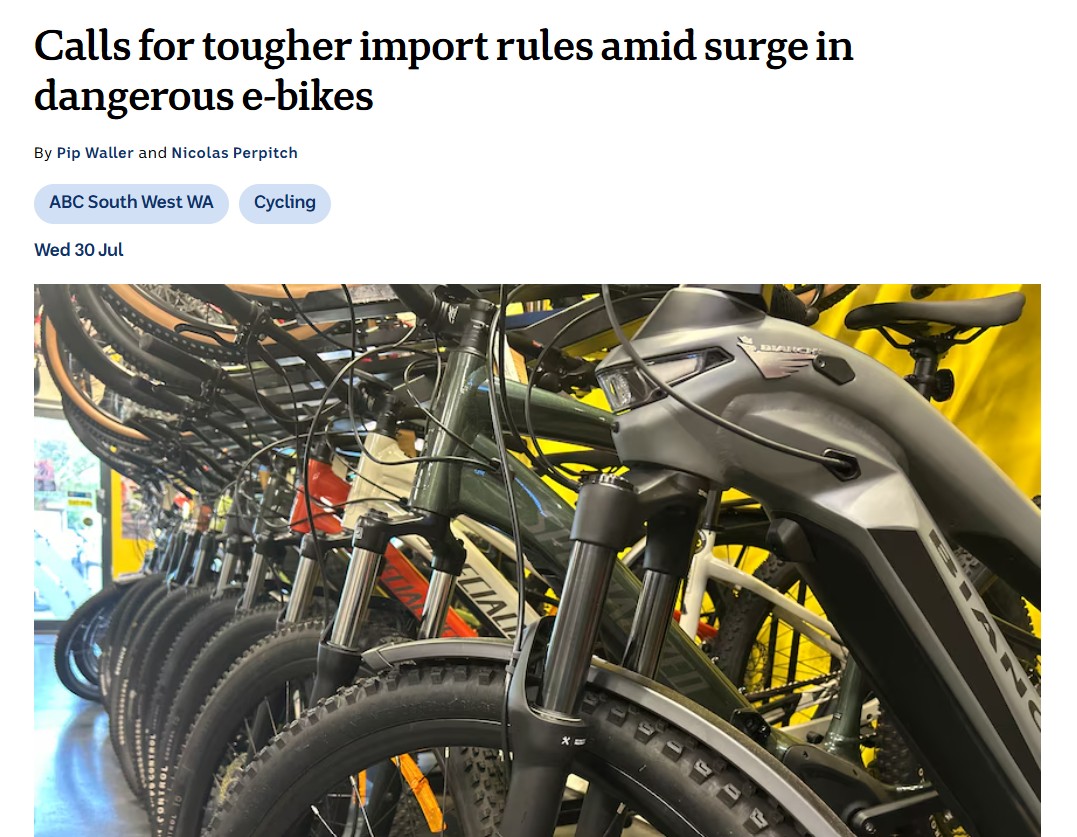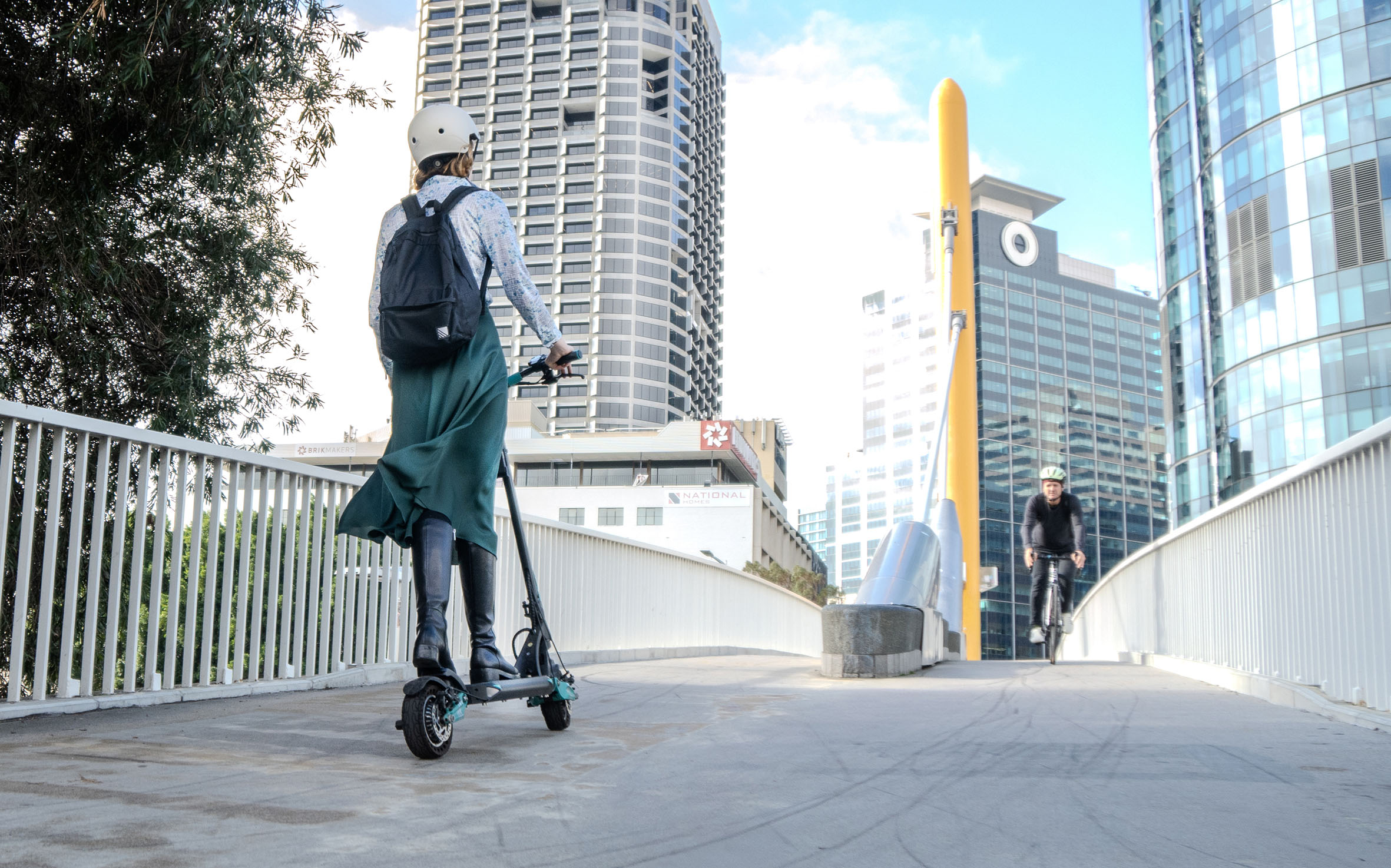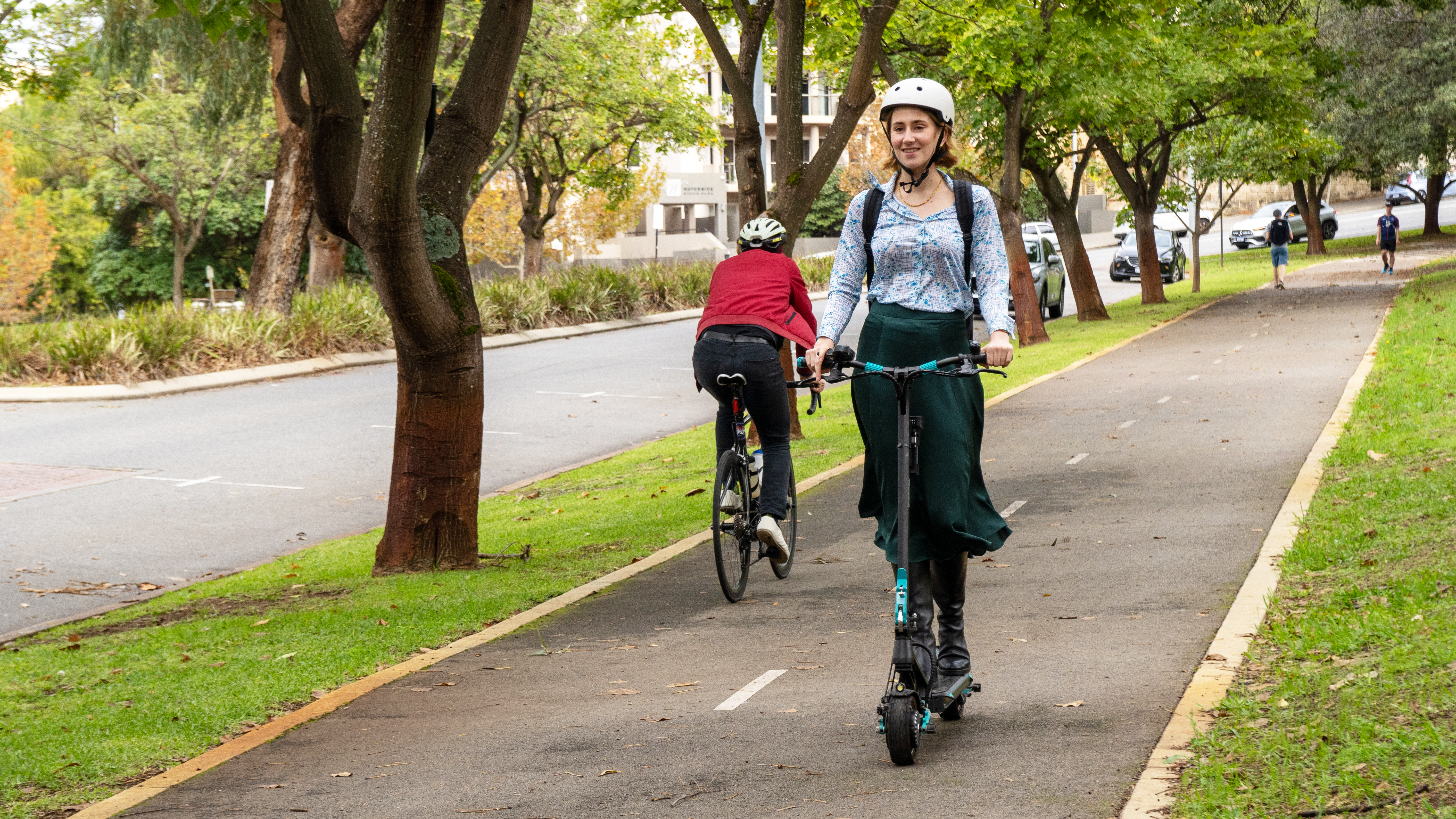“…as their use normalises and people understand the regulations around them – public and private support for these kind of schemes should increase.”

People on lower incomes use micromobility services including bikes and scooters like they use public transport if the price is right, research out of Victoria has found.
The independent research focused on micromobility provider Lime’s Access program, that offers 70-80% discounted rates to low-income users like pensioners, students and the unemployed.
It found Access users opted for micromobility devices like e-scooters and e-bikes for essential journeys such as shopping and commuting rather than leisure reasons.
Alexa Delbosc, associate professor in the Institute of Transport Studies in the Faculty of Civil Engineering at Monash University, led the research and told WestCycle the findings demonstrated the latent potential micromobility offered active travel.
“Public transport is subsidised around the world – why not shared scooters and bikes?” Dr Delbosc said.
“Micromobility is often not considered in the broader transport planning picture but our research shows people will use these devices in their everyday lives in the right circumstances – they can play a bigger role in the delivery of active travel solutions.”
Users with disabilities and those who could not afford a car, were two groups who stood out as beneficiaries and keen users of discounted micromobility access.
Dr Delbosc said many US cities have equity agreements in place that mean micromobility firms are obliged to offer subsidised services to those on lower incomes.
More people having affordable access to micromobility more often
In Australia, other micromobility providers like Neuron and Beam engage similar discounted schemes to Link Access.
Neuron offers 50% off its weekly and monthly subscriptions via Neuron Access concession passes to lower income groups in Australia, New Zealand, Canada and UK.
“Neuron first launched concession passes in 2022, they are now available in every one of our cities in Australia including Perth and Busselton, making our services more accessible and affordable for those who need them most,” a Neuron spokesperson told us.
“Our concession pass program allows low-income users to expand their mobility options. We are committed to creating a positive impact in all the communities we operate in.”
The challenge of behaviour change
Dr Delbosc said micromobility advances were often hamstrung by biases that existed in some quarters against the use of e-scooters and e-bikes often due to their relatively novel status. This could be amplified by ambiguity or misunderstanding around existing rules about how and where they should be ridden.
“Many people take issue with ‘e-scooter behaviour’ but as their use normalises and people understand the regulations around them – public and private support for these kind of schemes should increase.”
The study, published in the Journal of Cycling and Micromobility Research, is here.











